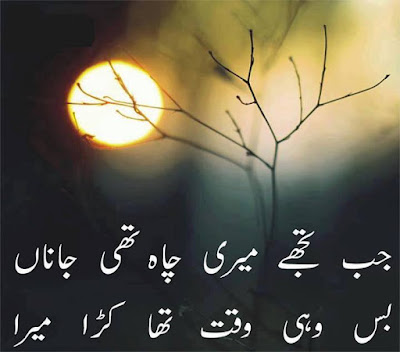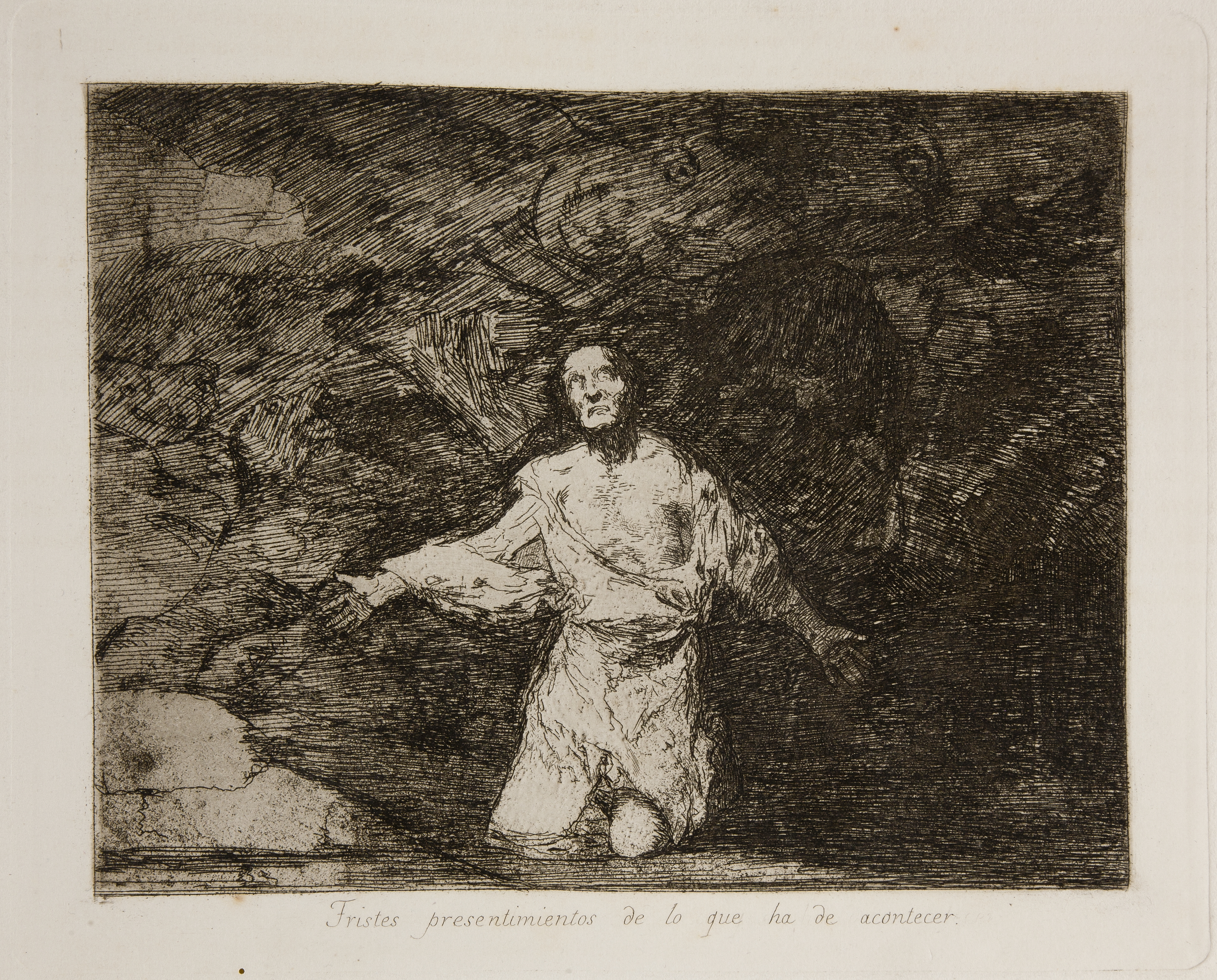Tuesday, 29 December 2015
Monday, 28 December 2015
Jerome Rothenberg: Three Poems from �The Disasters of War� after Goya
He is a real man
Sad presentiments
with reason
the same thing
when he murders,
is he not?
1/
Sad presentiments
of what must come
to pass a rage
of shredded clothes
the darkness
through which images
rain down
a ruined world
of bricks & walls
erased or crumbled
shattered* * splattered
on the broken ground
made present
by an unseen hand
like mine
the lines concealing
men & women
children
trees & gardens
grass gates gravestones
shrines & temples
class rooms
radios & books
old dresses
fifes & fiddles
heirlooms
bicycles
eyeglasses
sidewalks
monuments
engagements
marriages
employees
clocks & watches
street signs
works of art
the man�s face
shows it
chest & forearms
swollen
stumps for legs
the cry of blood
so fierce
it stops his heart
his eyes see only
lines like knives
criss-crossing
blood or rain
the word is misery
that binds him* *blinds him
where the waters rush
& rage
2/
with reason
or without
the fate of real men
facing off
guns at the quick
or lances
silently
the cries rise up
between clenched lips
the itch & thrill
of suffocation
driving them on
for which the mind
is never still
but races screaming
somewhere beyond
the zone
where real men go
theirs is the dream
of children
& old mothers
huddled masses
at their feet
the dream of where we go
& where the bayonet
enters the sad flesh
the dark device
explodes behind us
ready like them
to make its mark
the blood is like
a ribbon
where it leaves
his mouth
the knife his hand holds
hot to strike
the mind of Goya
falters sightless
writing in a room
without a light
he feels the thrust
much like his own
the speed of thought
where thought ends
the rest is flights
of spirits
dibbiks who will never
find a home
how heavy
we have all become
trying to free our hands
to etch our names
still mindful that the dead
will never sleep
3/
the same thing
from the ax
as from the sword
the fury* *vengeance
of the dead
against the quick
.
those who survive
remember
knives like lights
cutting through time
& leaving us
minus a hole to hide
.
swept into death
the boots
the men wear
when the feet
stop moving
stick out of the ground
.
beyond our sight
the earth
will swallow them
no hand upraised
to hold it back
or free us
.
if my hand
would thrust a knife
like yours
the blow would sever
head from throat
spreading the blood
.
down mirrors
it will flow
& when they cry
for sunlight
nothing
will answer
but the deadman�s
song
Monday, 21 December 2015
From Technicians of the Sacred (expanded): David Larsen�s Translation of �The Names of the Lion�
From THE NAMES OF THE LION
(al-?usayn ibn A?mad ibn Khalawayh)
al-Waththab �The Pouncer�
al-?A?u? �The Distresser�
al-Mihza? �The Smasher�
al-Miktal �The Big Food-Basket�
al-?Akammash �Whose Numbers are Oppressive�
al-Mu?rib �The Belligerent�
al-Sari?iyy �The Pastoral [Scourge]�
al-Mu?ami? �The Open-Mouthed�
al-Qa?faniyy �Whose Tread Stirs the Dust�
al-Hijaff �The Imposing Bulk�
al-?Assas �Who Looks for Trouble in the Night�
al-Mukhayyas �Whose Den Is Well Kept�
al-Sawwar �Who Goes Straight for the Head�
al-Musafir �The Wayfarer�
al-?a??ar �Whose Eyes Burn�
al-Ghayyal �The Well-Concealed�
al-Mi?akk �The Slammer�
al-Ahyab �The Most Fearsome�
Dhu Libd �Whose Hair is Matted�
al-Dilham �The Dusky�
al-Hawatima �Terror of the Lowland�
al-Arash �The Raking Blow�
al-Shaddakh �The Skull Crusher�
al-Dilhatha �Who Strides Unflinching Into Battle�
al-Qanaw?ar �The Impaler�, said also of the male
member of the tortoise, & the spear
Dhu �l-?Ufra �Whose Hair Gets Thicker When he�s
Mad�
Mad�
Dhu �l-Khis �Who Has a Hiding Place
Layth al-?Arin �Lion of the Treetop Hideaway�
Layth Khaffan �Lion of the Lion-Infested Area�
Layth al-Ghab �Lion of the Thicket�
Nazij �Prancer�
Akhram �Hare-Lip�
al-Shabil �Whose Teeth Are Interlaced�
al-A?far �Whose Coat Is the Color of the
Surface of the Earth�
Surface of the Earth�
al-Midlaj �Who Shows up Late at Night�
al-Mawthaban �The Seated [Monarch]�
al-Dawsar �The Lusty�
al-Abghath �Whose Coat Is Ashy�
al-Aghtha �Whose Coat Is Shabby�
al-Ghathawthar �The Thug�
al-Ghuthaghith �Who Fights Without a Weapon�
al-Ghazi �The Raider�
al-Mufarfir �The Mangler�
al-Khashshaf �The Calamity�
al-Azhar �The Radiant�
al-Irris �The Chief�
al-Ajwaf �The Big-Bellied�
al-Jafi �The Brute�
al-Jahil �The Unrepentant�
al-Mu?lankis �Whose Hair Hangs in Clusters�
al-Jayfar �Whose Sides Are Well Filled Out�
al-Ma?i �The Cutter,� also said of a sword
al-Qu?qu?a �The Stocky�
al-?ari �The Blood-Bather,� also said of an
open vein
open vein
al-?abur �The Perseverant�
al-?a?b �The Difficult�
al-Mu?tajir �Furiously Jealous in Defense of
What Is His�
What Is His�
al-Mudill �The Brazen�
al-Hay?ama �The Destroyer�
al-Ashra? �Whose Nose Is Long and Prominent�
al-Qa?u? �The Sunderer�
al-?uba?ib �The Giant Lout�
al-Qir?im �Who Takes the Whole�
al-Ruzam �Who Can�t Be Budged�
al-Hajjas �The Show-Off�
al-Muqa?mil �The Brutal Shepherd�
al-?Antaris �Valiant in Battle
and the she-camel
and the she-camel
al-Shaykh �The Elder� (Syria
Source: al-?usayn ibn A?mad ibn Khalawayh, Names of the Lion, translated with notes and an introduction by David Larsen (Atticus / Finch, 2009), 33-36 (revised).
(1) As with Gertrude Stein�s insight cited elsewhere, a poetry of names emerges, even & sometimes most powerfully in forms & genres not associated with poetry as such. In the instance of Ibn Khalawayh (d. 980 or 981 CE), he was a Persian-born grammarian much of whose work was devoted to curiosities & anomalies of the Arabic language. So, according to David Larsen as scholar/translator, �Names of the Lion comes from a long serial work called Kitab Laysa fi kalam al-?arab (The Book of �Not in the Speech of the Arabs), which has never been printed in its entirety. The title comes from the formula opening each short chapter: �There is in the speech of the Arabs no�� followed by various exceptions to the stated rule.� Apart from this larger work, Names of the Lion came to be read independently along with now inextant listings of his such as Names of the Serpent and Names of the Hours of the Night. That we may read these today � �in the procedural spirit of recent avant-garde tradition� � as acts of poesis, is an indication of how far our own practice has come in the extension of what we identify or read as poetry.
(2) Writes David Larsen further: �Asiatic lion populations were endemic to Syria and Iraq
(3) The instances of poems as namings & namings as poetry run a wide gamut of human experiences, some of which the present editor has cited numerous times in gatherings starting with the first edition of Technicians of the Sacred: Egyptian god names, Homeric ship names, African praise names, the 99 names of Allah, the 950 Sikh god names of Guru Gobind Singh, the 72 names of YHVH (The Lord) in Kabbala (including �The Name� itself), & numerous namings of objects & beings (divine & mundane) by tags & by metaphors.
(4) �Victory will be above all / To see truly into the distance / To see everything / Up close / So that everything can have a new name.� (Guillaume Apollinaire)
Subscribe to:
Comments (Atom)
















































